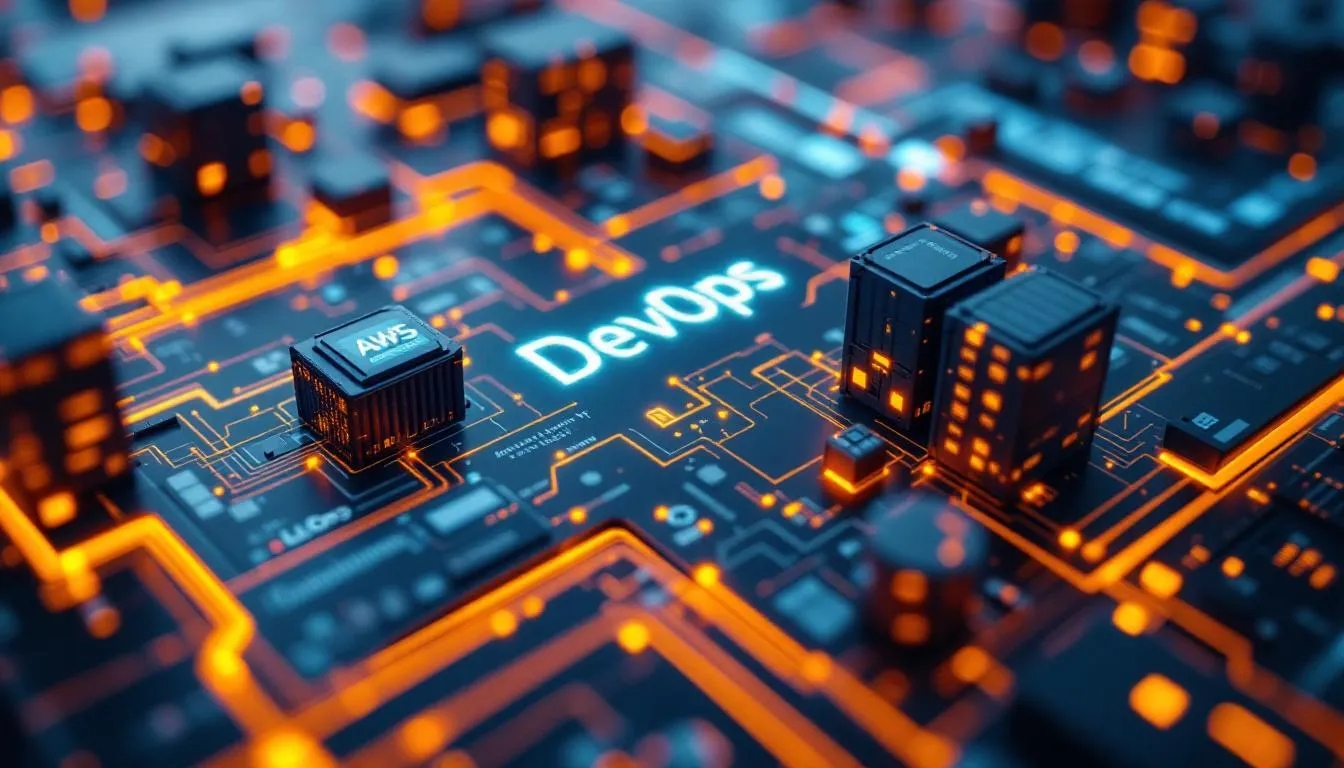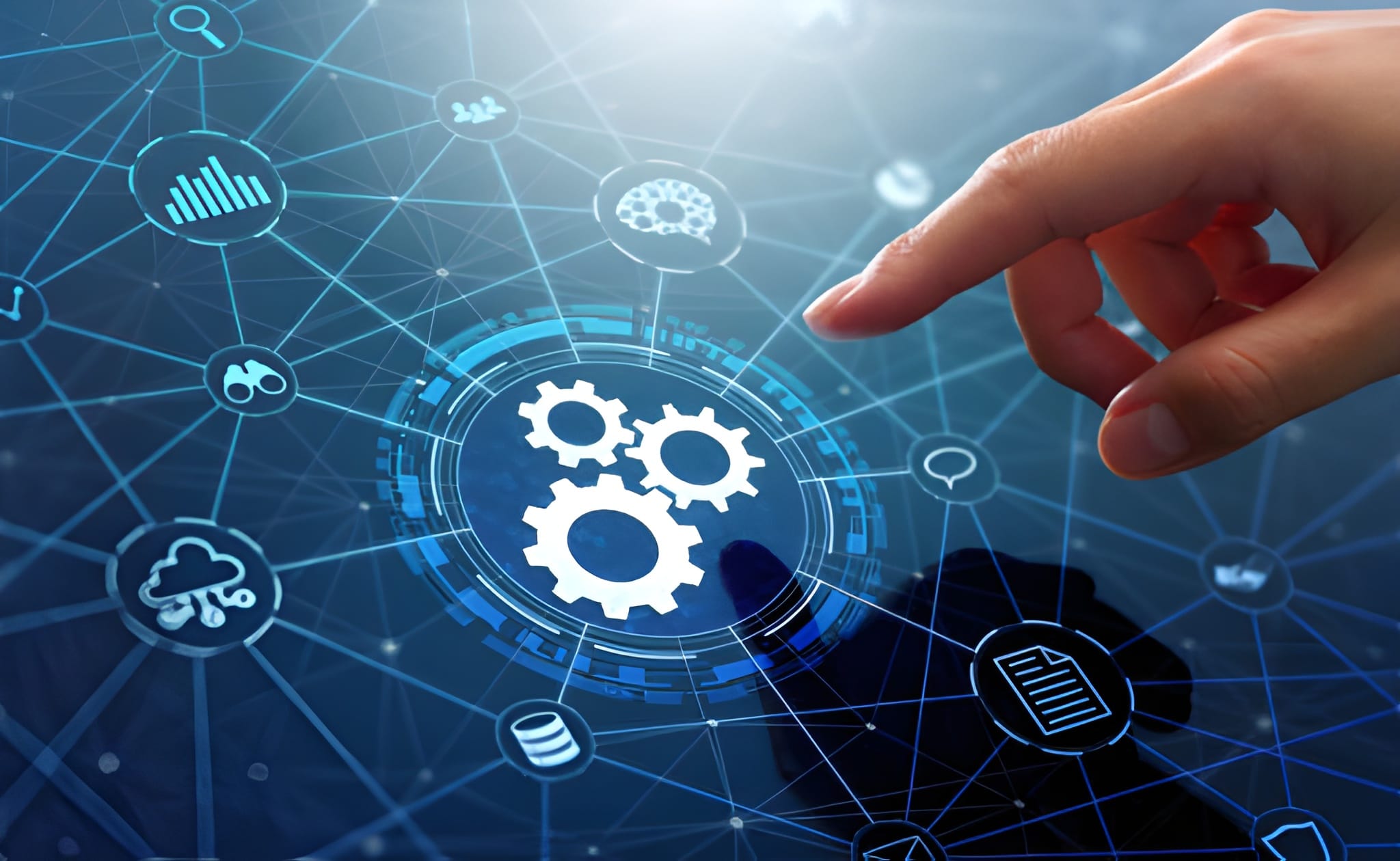Are you struggling to measure ROI on your blockchain ai integration projects? As organizations invest increasingly into combining these two transformative technologies, understanding how to quantify their success becomes paramount. Defining Key Performance Indicators (KPIs) can help clarify objectives and ensure a pathway to success. With the right KPIs in place, you can better navigate the complex landscape of blockchain and AI. Are your investments yielding results, or are you left with unanswered questions? Let’s delve into the essential metrics and strategies for measuring the effectiveness of your blockchain ai integration efforts.
Key Considerations for Blockchain Ai Integration
Importance of KPIs for Blockchain Ai Integration
When embarking on blockchain ai integration, one of the most crucial aspects is establishing relevant KPIs. These indicators serve as a compass, guiding organizations in tracking their progress, performance, and efficiencies derived from the integration. KPIs for blockchain ai integration should encompass a variety of areas including operational effectiveness, cost savings, customer satisfaction, and technological performance.
The significance of KPIs lies in their ability to provide actionable insights. For example, a software development company implementing blockchain ai in its operations might track metrics such as transaction speed improvements and error rate reductions. This insight directly impacts decision-making, enabling leaders to adjust strategies promptly, foster innovation, and ultimately achieve better business outcomes. Additionally, as companies modernize their infrastructure, KPIs help in evaluating the return on investments made during the migration process.
Common Challenges in Blockchain Ai Integration
Despite the benefits, organizations often face numerous challenges during blockchain ai integration. Foremost among these is the complexity of technology itself. Many firms lack the expertise needed for such sophisticated integrations, leading to project delays and increased costs. This can be particularly true when they hire a mobile app development company without a solid understanding of both blockchain and AI technologies.
Moreover, aligning various stakeholders’ expectations can lead to friction during the integration process. Conflicting KPIs can further complicate initiatives, making it challenging to gauge overall success. Integration issues, such as legacy system compatibility, can also impede progress. Recognizing these hurdles upfront can help organizations develop strategies to mitigate risks and streamline their integration efforts.
Benefits of Blockchain Ai Integration Migration
Enhancing Efficiency with Blockchain Ai Integration
Migrating to a new system that incorporates blockchain and AI can significantly enhance operational efficiency. For instance, automating processes reduces human error and streamlines workflows. Organizations often report improved data management and enhanced decision-making capabilities when they move to a blockchain ai environment. Companies that implement blockchain for process automation can see their operational costs drop by up to 30%, achieving efficiencies that traditional systems simply cannot offer.
Adopting blockchain ai integration also enables real-time data access across multiple stakeholders, enhancing transparency and collaboration. This leads to better project tracking and a tighter grip on timelines. For example, in supply chain management, the ability to track products from source to user becomes immensely simplified, enabling businesses to respond quickly to challenges and optimize resource allocation.
Cost Savings from Blockchain Ai Integration Migration
Cost savings are another pivotal benefit associated with blockchain ai integration migration. Organizations that migrate often experience significant reductions in operation costs by streamlining processes and improving resource management. According to a recent study by Accenture, enterprises that utilized AI in conjunction with blockchain achieved cost efficiencies averaging 20-40% within the first year of implementation.
Moreover, ongoing operational costs can decrease thanks to reduced manual labor and enhanced accuracy. For example, a finance company that employs blockchain ai integration might reduce its transaction settlement times, eliminating bottlenecks and cutting down transaction fees. These savings can be redirected towards further innovation, making the organization more competitive in the rapidly evolving marketplace.
Modernizing Your Approach to Blockchain Ai Integration
Techniques for Successful Blockchain Ai Integration Modernization
To modernize your approach to blockchain ai integration, it is crucial to adopt techniques that are adaptable and forward-thinking. Start by implementing Agile methodologies, which allow for iterative development and flexibility. This can involve sprints focusing on rapid prototyping and user feedback, incorporating real insights to shape the integration strategy as it evolves.
Additionally, employing cloud solutions can vastly simplify your infrastructure and promote scalability. Rather than investing heavily in on-premise solutions that may soon be outdated, a cloud-based setup provides ongoing updates and maintenance, aligning with modern software development practices. This can significantly reduce the complexity of the migration process from legacy systems to a blockchain-powered architecture.
Real-World Examples of Blockchain Ai Integration Modernization
Organizations transitioning to blockchain ai are often met with success stories that serve as inspirational benchmarks. For instance, IBM adopted blockchain to revolutionize its supply chains through transparency, enabling partners to share data seamlessly. This modernization enabled a more trustworthy and efficient supply chain environment, leading to better business decisions.
Another notable example is the healthcare sector, where companies such as Change Healthcare utilize blockchain ai integration to secure patient data effectively. By streamlining patient data sharing and enhancing security, they not only improve operational efficiencies but also establish themselves as industry leaders in a competitive landscape. These case studies illustrate the immense benefits achievable through modernization, ultimately driving organizations towards greater success.
How Software Development Companies Handle Blockchain Ai Integration
Ideal Software Development Practices for Blockchain Ai Integration
When it comes to blockchain ai integration, ideal practices must be followed to ensure a successful outcome. One of the fundamental practices for a software development company is incorporating Modular Design Principles. This way, different components can be developed and tested independently before integrating them into the final system. This modular approach enhances maintainability and allows for quicker deployment.
Engaging cross-functional teams also plays a crucial role. Bringing together experts from varied fields, including blockchain engineers, AI specialists, and business analysts, fosters an environment of collaboration and innovation. Additionally, incorporating Continuous Integration and Continuous Deployment (CI/CD) practices helps to reduce risk, ensuring that newly integrated features work seamlessly with existing operations.
Selecting the Right Software Development Company for Blockchain Ai Integration
Choosing the right software development company for your blockchain ai integration is vital for success. Key criteria should include assessing their experience in delivering blockchain projects and expertise in AI technologies. A strong portfolio showcasing previous successful integrations will provide insight into their capabilities.
Also, evaluate their understanding of industry regulations, especially if you operate in sectors like finance or healthcare, where data security is critical. Look for a company that emphasizes ongoing support and collaboration throughout the project lifecycle, confirming they are committed to not just deploying technology but to fostering lasting partnerships that promote sustained success.
Mobile App Development Company Integration with Blockchain and AI
Role of Mobile App Development Company in Blockchain Ai Integration
Mobile app development companies can play a pivotal role in the success of blockchain ai integration. By developing user-friendly interfaces, they help users gain seamless access to features powered by blockchain and AI. For example, applications enabling peer-to-peer transactions without intermediaries can significantly reduce transaction times and costs.
Moreover, these companies can utilize AI algorithms to enhance user interactions, providing personalized recommendations based on data analyzed from blockchain transactions. This dual-power approach can drive customer engagement and improve user satisfaction, thereby directly contributing to your organization’s broader success metrics.
Success Stories of Mobile App Development Company Integrations
Numerous mobile app development companies have successfully integrated blockchain and AI. A prime example is the banking app developed by a fintech startup that leverages blockchain for secure transactions while employing AI to automate customer service queries. This innovative solution not only improved customer satisfaction but also provided the bank with comprehensive insights into customer behavior, informing product development strategies.
Similarly, Square’s Cash App integrated both AI and blockchain technology to provide faster transaction speeds and enhanced security. The successful merger of these technologies demonstrates how mobile app development companies can harness the power of blockchain and AI to create solutions that resonate with users and drive market prominence.
Measuring ROI from Blockchain Ai Integration
Key Metrics for Evaluating ROI in Blockchain Ai Integration
When it comes to measuring ROI from blockchain ai integration, several key metrics should be monitored regularly. One of the most important metrics is the reduction in transaction costs, which often translates directly to improved profitability. Tracking time savings in process execution additionally provides tangible evidence of efficiency.
Customer satisfaction metrics should also be assessed, gauging the response to faster services or improved user interfaces. Finally, the rate of error reduction helps quantitate the benefits derived from robust security features inherent in blockchain technology. Combining these metrics will yield a holistic view of the impact achieved from the integration project.
Long-Term Benefits of Effective Blockchain Ai Integration
The effects of successful blockchain ai integration extend well beyond immediate financial returns. Long-term benefits include establishing competitive advantages, improving brand trust, and fostering innovation. As operations become more efficient, organizations are better positioned to pivot and adapt to market changes, ensuring sustainability in a dynamic landscape.
Moreover, enhanced data visibility and security ensure compliance with increasingly stringent regulations, reducing potential legal risks over time. Thus, while organizations seek to measure short-term ROI, it is critical to also view blockchain ai integration through the lens of long-term strategic growth and resiliency.
Conclusion
In conclusion, the integration of blockchain and AI presents unique opportunities and challenges for organizations. Establishing proper KPIs not only helps in measuring immediate outcomes but also guides long-term strategies towards modernization and migration. By partnering with the right software development and mobile app development companies, organizations can maximize their potential in both efficiency and innovation.
Wildnet Edge stands out as a trusted, AI-first company, offering expertise and authoritative solutions in this realm. If you seek to explore further or require a consultation on how blockchain ai integration can elevate your projects, we invite you to contact us today.
FAQs
Blockchain ai integration brings efficiency, transparency, and trust in data transactions. Improved operational processes, cost savings, and enhanced customer experiences are key benefits.
Migration involves transitioning from traditional systems to a blockchain-enabled setup, improving data management and optimizing workflows.
Modernization ensures companies stay competitive by adopting cutting-edge technologies for better performance and operational efficiencies.
Evaluate their experience in blockchain projects and their expertise in AI technologies, as well as their commitment to ongoing support.
A mobile app development company can create user-friendly applications that utilize blockchain ai integration for enhanced features, thus driving engagement and satisfaction.

Nitin Agarwal is a veteran in custom software development. He is fascinated by how software can turn ideas into real-world solutions. With extensive experience designing scalable and efficient systems, he focuses on creating software that delivers tangible results. Nitin enjoys exploring emerging technologies, taking on challenging projects, and mentoring teams to bring ideas to life. He believes that good software is not just about code; it’s about understanding problems and creating value for users. For him, great software combines thoughtful design, clever engineering, and a clear understanding of the problems it’s meant to solve.
 sales@wildnetedge.com
sales@wildnetedge.com +1 (212) 901 8616
+1 (212) 901 8616 +1 (437) 225-7733
+1 (437) 225-7733















 ChatGPT Development & Enablement
ChatGPT Development & Enablement Hire AI & ChatGPT Experts
Hire AI & ChatGPT Experts ChatGPT Apps by Industry
ChatGPT Apps by Industry ChatGPT Blog
ChatGPT Blog ChatGPT Case study
ChatGPT Case study AI Development Services
AI Development Services Industry AI Solutions
Industry AI Solutions AI Consulting & Research
AI Consulting & Research Automation & Intelligence
Automation & Intelligence















